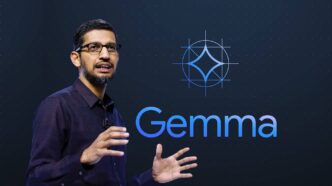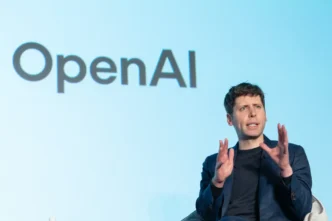Google just took a major step toward making AI more personal and accessible. At Google I/O 2025, the tech giant unveiled the latest addition to its “open” model family: Gemma 3n—a lightweight, multimodal AI that can now run directly on phones and other edge devices.
Designed for speed and efficiency, Gemma 3n supports text, images, video, and audio—and it’s optimized to work smoothly on devices with less than 2GB of RAM. That means developers can now tap into powerful AI performance without needing constant cloud access. According to Gemma product manager Gus Martins, it shares its core architecture with Gemini Nano, Google’s earlier compact model, and brings “incredible performance” to mobile and embedded systems.
Running AI offline has become increasingly popular, especially among privacy-conscious developers. Unlike large-scale models that rely on remote servers, Gemma 3n allows apps to process data locally—saving cost, boosting speed, and enhancing data privacy.
But that’s not the only update from Google’s AI team.
New AI Tools for Health and Accessibility
Alongside Gemma 3n, Google introduced MedGemma, a model tailored for healthcare applications. Released through its Health AI Developer Foundations program, MedGemma is capable of analyzing both medical images and health-related text. It’s built for adaptability—so developers can fine-tune it for specific health use cases, from diagnostic imaging apps to medical report summarization tools.
Google also gave a sneak peek at SignGemma, its upcoming model for translating sign language into written and spoken language. Optimized for American Sign Language (ASL) and English, SignGemma is being hailed as the most advanced sign language model ever trained. It’s designed to support deaf and hard-of-hearing communities by powering new apps, accessibility features, and inclusive integrations.
Gus Martins emphasized SignGemma’s potential to fuel innovation, saying developers now have the tools to build “a whole new generation of communication apps.”
Licensing Concerns Linger
Despite the excitement, Google’s Gemma models haven’t been without controversy. Some developers have raised concerns about the non-standard licensing terms, which can complicate commercial use. Even so, adoption has been swift. Google reports tens of millions of Gemma downloads to date, showing that developers are eager to experiment—even if the license comes with caveats.
From compact edge performance to medical insights and inclusive communication, the Google Gemma AI model is evolving fast—and proving that AI doesn’t need to be tethered to the cloud to make a real-world impact.













